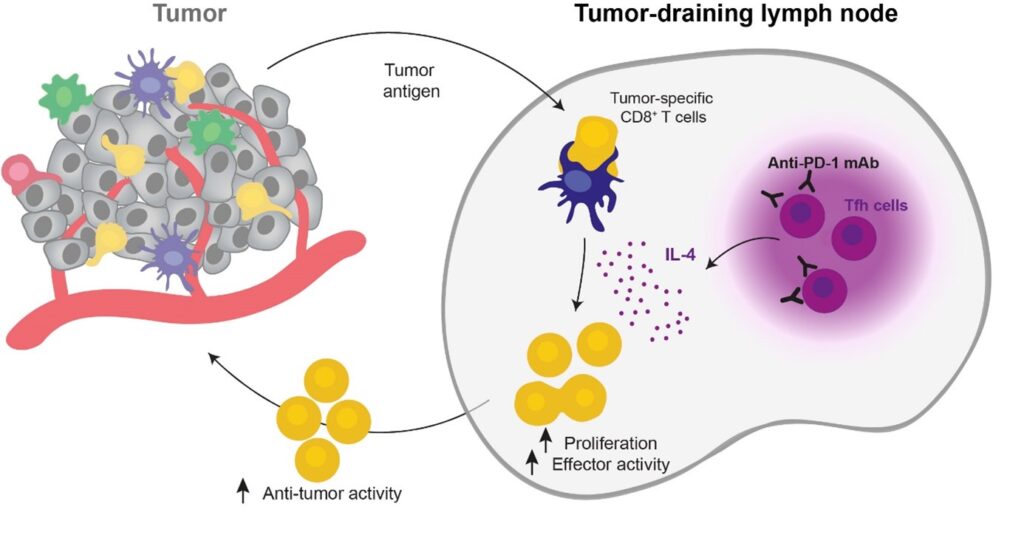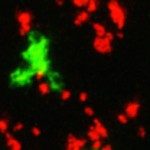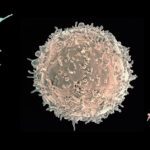Anti-PD-1 immunotherapies are now used to treat several types of cancer, from solid tumors such as melanoma and non-small-cell lung cancer to hematologic malignancies such as Hodgkin lymphoma, by targeting intra-tumoral CD8+ T cells to boost antitumoral immune activity. In their latest paper, Philippe Bousso and his team uncover an additional effect of anti-PD-1 monoclonal antibodies (mAb) on the lymph nodes draining the tumor by showing they target there a subset of CD4+ T cells, identified as follicular helper T cells (Tfh), which highly express PD-1. This induces the production of IL-4 by the Tfh which favors the activation and expansion of tumor-specific CD8+ T cells present in the draining lymph nodes. This was demonstrated by blocking BCL 6 activity (a master regulator of Tfh function) via FX-1 treatment or IL-4 activity via anti-IL4 mAb treatment, which both abolish anti-PD-1 activity in the lymph nodes. This study demonstrates a dual effect of anti-PD-1 immunotherapy both at the tumor site and in draining lymph nodes, contributing in a synergetic way to the tumor control.

Source
Anti-PD-1 therapy triggers Tfh cell–dependent IL-4 release to boost CD8 T cell responses in tumor-draining lymph nodes, Journal of Experimental Medicine, February 28, 2024
Read the press release: Cancer: unexpected mechanism of action of immunotherapy revealed










